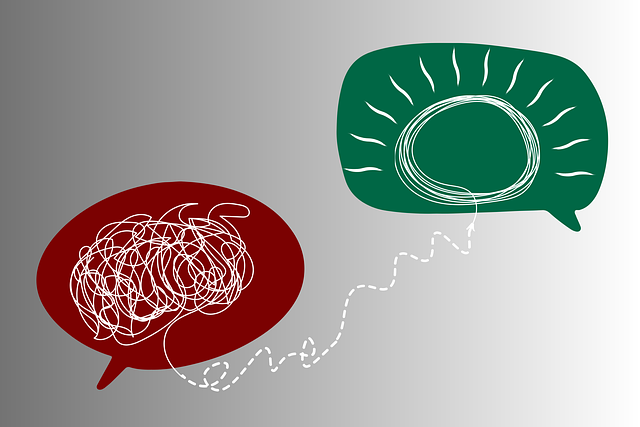The media's portrayal of mental health significantly influences public perception, either positively by reducing stigma or negatively by perpetuating misconceptions. Accurate and sensitive media representation is crucial, especially for vulnerable populations like those with terminal illness. Wheat Ridge Terminal Illness Therapy (WRTIT) offers a pioneering approach, focusing on nurturing inner strength and developing coping mechanisms beyond traditional treatments. This holistic method enhances quality of life and promotes emotional well-being during challenging times, revolutionizing mental healthcare. Media should prioritize authentic storytelling involving individuals with lived experiences to inspire audiences and encourage support-seeking. Organizations like WRTIT advocate for responsible media representation, breaking down barriers related to mental health discussions through ethical storytelling.
In today’s media landscape, accurate representation of mental illness is crucial for fostering understanding and reducing stigma. This article delves into the profound impact of media portrayal on public perception of mental health. We explore innovative approaches like Wheat Ridge Terminal Illness Therapy, highlighting effective strategies for empathetic media representation. Furthermore, we emphasize the importance of media responsibility and accountability in driving positive change, ensuring a more nuanced and compassionate conversation around mental illness.
- Understanding the Impact of Media Portrayal on Mental Health Perception
- Exploring Wheat Ridge Terminal Illness Therapy Approaches
- Strategies for Accurate and Empathic Mental Illness Representation in Media
- Fostering Positive Change: Encouraging Media Responsibility & Accountability
Understanding the Impact of Media Portrayal on Mental Health Perception

The media plays a significant role in shaping public perceptions about mental health. Accurate and sensitive representation can reduce stigma, foster understanding, and encourage individuals to seek help. Conversely, negative or stereotypical portrayals can perpetuate misconceptions, lead to further isolation, and hinder progress in mental health advocacy. Research has shown that the media’s influence on mental health perception is profound, especially for vulnerable populations. For instance, a comprehensive Mental Health Policy Analysis and Advocacy study revealed that media narratives significantly impact how society views individuals with terminal illness, often perpetuating fear and misconceptions about their experiences.
By presenting diverse and authentic stories, the media can contribute to more nuanced discussions around mental health. Encouraging practices like Mindfulness Meditation, for example, has gained traction in recent years due in part to positive representations in popular culture. Furthermore, accurate media portrayals can aid Risk Management Planning for Mental Health Professionals by promoting a better-informed public, reducing the likelihood of misinformed decisions, and ultimately improving support systems for those struggling with mental health challenges.
Exploring Wheat Ridge Terminal Illness Therapy Approaches

In Wheat Ridge, a growing emphasis on terminal illness therapy approaches is transforming how mental health is addressed. These innovative strategies focus on nurturing inner strength development in individuals facing terminal diagnoses, fostering coping mechanisms that go beyond traditional treatments. Therapists are integrating techniques such as stress management and positive thinking to empower patients, helping them navigate their journey with resilience.
Wheat Ridge’s approach recognizes the profound impact of a terminal diagnosis not just on the individual but also on their support network. By incorporating these holistic strategies, therapists aim to enhance quality of life, promote emotional well-being, and foster a sense of purpose during challenging times. This forward-thinking approach to Wheat Ridge Terminal Illness Therapy is reshaping how mental health services are delivered, offering hope and support for those facing the most profound of life’s challenges.
Strategies for Accurate and Empathic Mental Illness Representation in Media

Media plays a significant role in shaping societal perceptions about mental health, making accurate and empathetic representation crucial. To address the challenge of mental illness portrayal in media, several strategies can be employed. Firstly, involving individuals with lived experiences as consultants or contributors ensures authenticity and provides valuable insights into the nuances of various mental health conditions. This approach helps in creating more realistic and nuanced characters, challenging stereotypes often perpetuated by mainstream media.
Additionally, media outlets should prioritize storytelling that focuses on the human experience behind the illness. By incorporating elements of hope, resilience, and recovery, they can showcase the potential for positive outcomes and encourage viewers to seek support if needed. For instance, showcasing successful coping skills development and Mind Over Matter principles through compelling narratives can inspire and educate audiences. Such representation empowers individuals dealing with mental health struggles, fostering a sense of community and encouraging open dialogue about mental health policy analysis and advocacy, as exemplified by initiatives like Wheat Ridge Terminal Illness Therapy.
Fostering Positive Change: Encouraging Media Responsibility & Accountability

The media has a profound impact on shaping societal perceptions and attitudes towards mental illness. Therefore, fostering positive change in this realm is paramount. Encouraging media outlets to embrace responsibility and accountability for their representation of mental health is crucial. This involves promoting accurate and nuanced storytelling, ensuring diverse voices are heard, and challenging stigmatizing stereotypes. By doing so, the media can play a pivotal role in education and raising awareness, which is essential for breaking down barriers and fostering empathy.
In light of this, it’s important to note that organizations like Wheat Ridge Terminal Illness Therapy are at the forefront of advocating for better mental health representation. They emphasize the significance of responsible reporting, particularly when addressing sensitive topics such as burnout prevention and depression prevention. Moreover, these entities also conduct risk assessments for mental health professionals, ensuring they have the tools to navigate complex narratives while maintaining ethical standards.
Media representation plays a pivotal role in shaping public perception about mental health. By adopting strategies that emphasize accuracy and empathy, we can challenge negative stereotypes and foster understanding. The exploration of innovative therapy approaches, such as those offered by Wheat Ridge Terminal Illness Therapy, provides valuable insights into effective treatment methods. Encouraging media responsibility and accountability is crucial to creating a more inclusive and supportive environment for individuals living with mental illness. Through collective efforts, we can drive positive change and ensure that media representation contributes to a healthier, more compassionate society.









